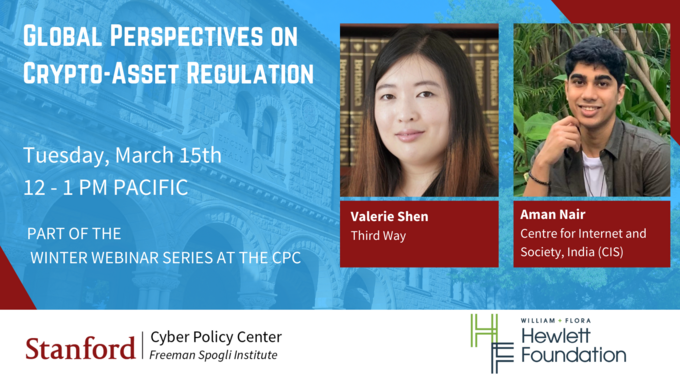Global Perspectives on Crypto-Asset Regulation

Join us on Tuesday, March 15th from 12 PM - 1 PM PT for “Global Perspectives on Crypto-Asset Regulation” featuring Valerie Shen of Third Way, Aman Nair of the Centre for Internet and Society, in conversation with Kelly Born of the Hewlett Foundation. This weekly seminar series is jointly organized by the Cyber Policy Center’s Program on Democracy and the Internet and the Hewlett Foundation’s Cyber Initiative.
About The Seminar:
Since the launch of Bitcoin, the world’s first cryptocurrency, just over 10 years ago, the cryptocurrency market has grown to over $2.4 trillion, tripling in value in the last year alone. In addition to its many purported benefits, cryptocurrency poses challenges to the environment, privacy, financial stability, and more. Cryptocurrencies have played an increasing role in the rise of cybercrimes, including ransomware and money laundering. In light of this the Biden Administration, European Union, Indian government, and countries around the world are actively exploring regulatory options to address these and other concerns. On March 15 join Aman Nair of India’s Centre for Internet and Society and Valerie Shen of Third Way, in conversation with Kelly Born of the Hewlett Foundation, to discuss the use cases and limitations of crypto-assets, compare relevant regulatory regimes from around the world, discuss the debate over the proper legal and regulatory framework for crypto-enabled crime, and explore how to govern crypto-assets while supporting widespread financial stability.
Speakers:
















